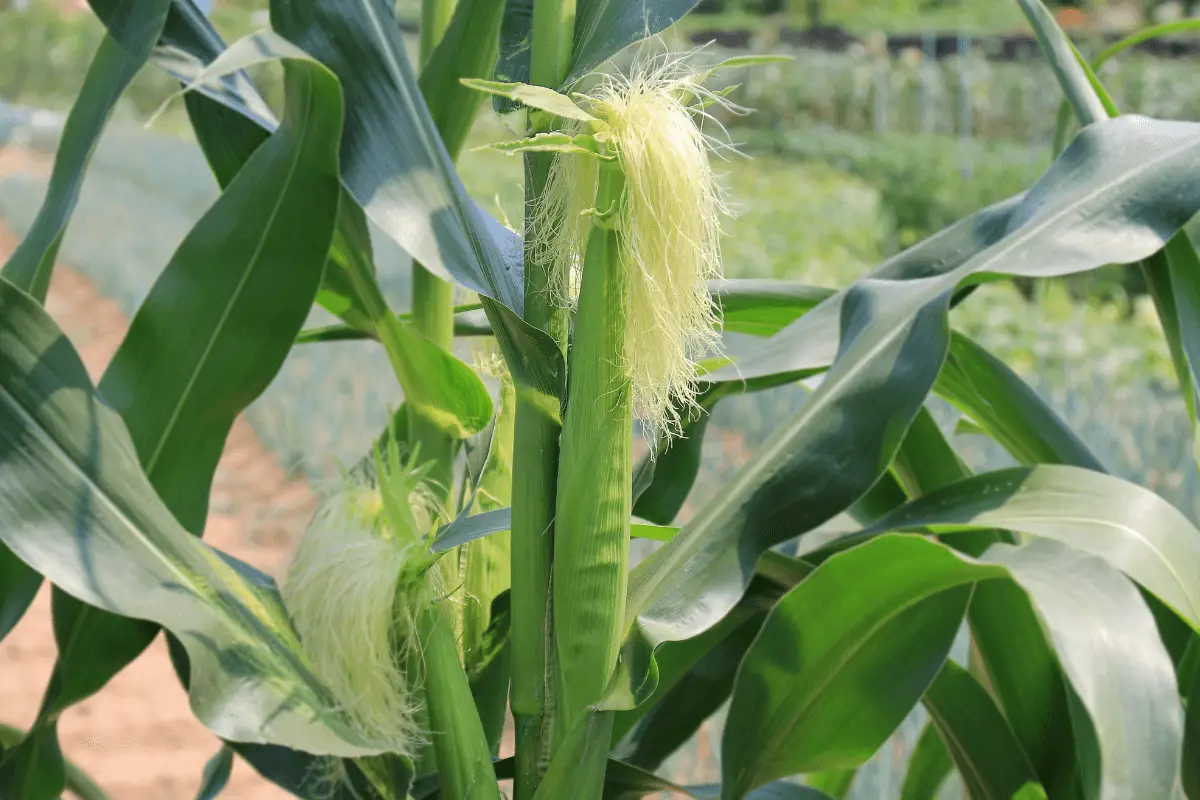Cornsilk, also known as maize silk, refers to the long, shiny fibers on an ear of corn. Most people discard cornsilk when preparing corn. However, it has been used for centuries for its medicinal properties. Maize silk is known for its health benefits. It reduces inflammation, lowers blood pressure, and improves urinary tract health.
One of the most well-known benefits of cornsilk is its diuretic properties. It has been used for centuries to treat urinary tract infections and other urinary tract disorders. Cornsilk is believed to help flush out the urinary tract and reduce inflammation, making it an effective natural remedy for these conditions.
In addition to its diuretic properties, cornsilk is also believed to have anti-inflammatory and antioxidant effects. These properties may help reduce inflammation throughout the body, which is believed to be a contributing factor to a variety of chronic health conditions. While more research is needed to fully understand the health benefits of cornsilk, it is clear that this humble plant has been used for centuries for its medicinal properties.
Cornsilk Botanical Profile – Get Your Corn Silk Here.
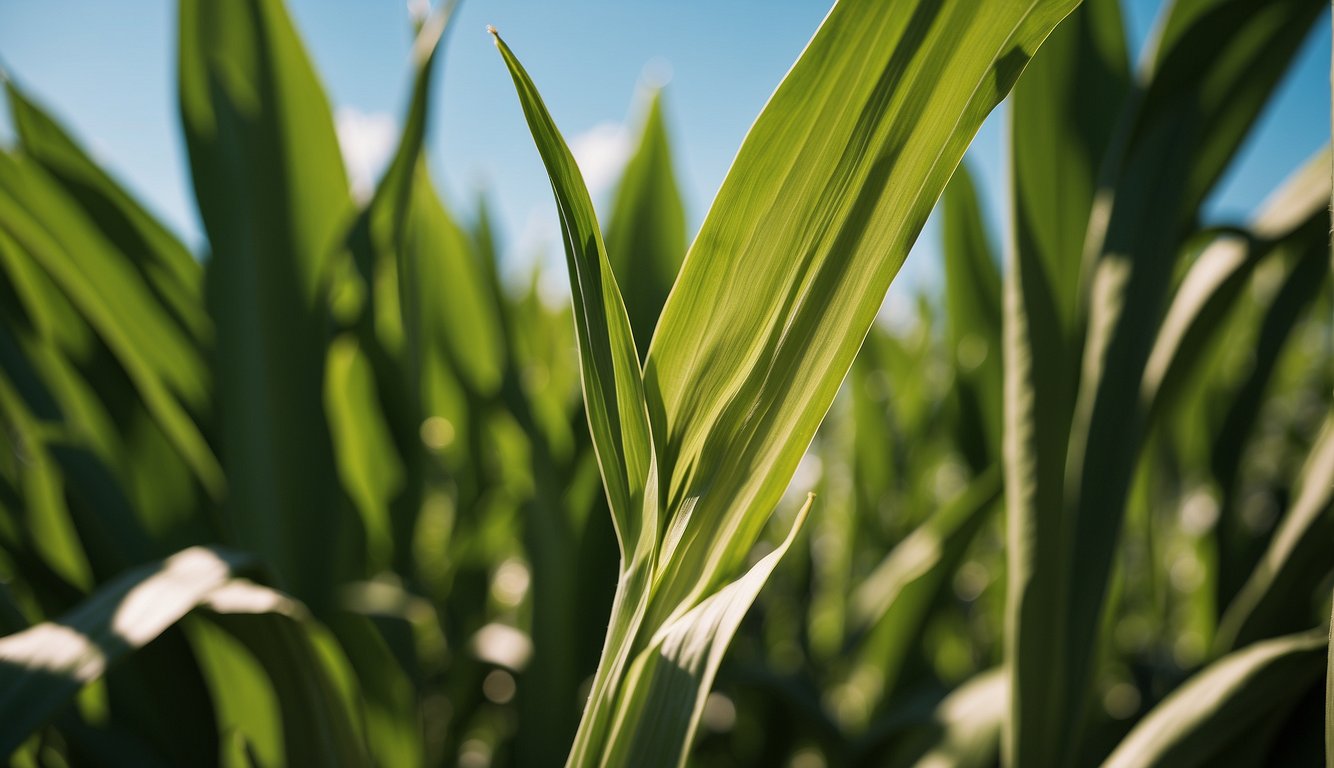
Cornsilk Origin and Description
Maize Silk, also known as Stigma Maydis, is the shiny, thread-like, weak fibers that grow as part of ears of corn (maize). The tuft or tassel of silky fibers that protrude from the tip of the ear of corn is enclosed in modified leaves called husks. Each individual fiber is an elongated style, attached to an individual ovary. Cornsilk is native to North America and has been used for centuries in traditional medicine by the Native Americans and Chinese.
Maize Silk is pale green at first, which turns red, and can grow up to 20 cm in length. It is a delicate plant with a soft, silky texture and a slightly sweet taste. Cornsilk is high in potassium, calcium, and vitamins C and K. It is also a rich source of antioxidants, which help protect the body against damage caused by free radicals.
Cornsilk Harvesting and Processing – Get Your Corn Silk Here.
Maize Silk is harvested from fresh ears of corn during the summer months. The silk is carefully removed from the ears and then dried in the sun or in a dehydrator. Once dried, the silk can be stored in an airtight container for later use.
The dried cornsilk can be used to make tea, tinctures, or capsules. To make tea, simply steep a handful of dried cornsilk in hot water for several minutes. The resulting tea has a mild, slightly sweet flavor and is often used to promote urinary tract health.
Overall, cornsilk is a versatile plant with a variety of health benefits. Its gentle nature makes it suitable for use by people of all ages, and its rich nutritional profile makes it a valuable addition to any diet.
Cornsilk Nutritional Composition
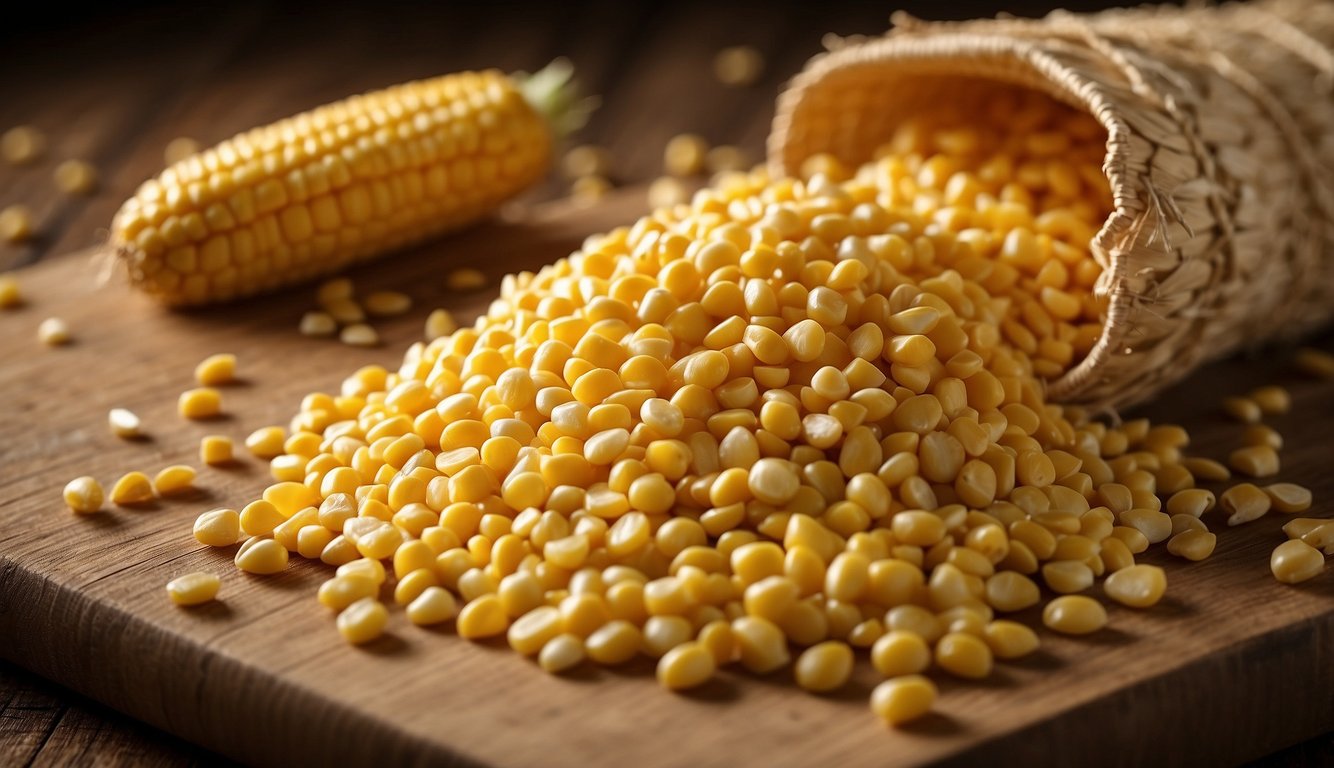
As a by-product of corn cultivation, cornsilk is a rich source of various nutrients, including vitamins, minerals, and macronutrients. In this section, I will discuss the nutritional composition of Maize Silk.
Cornsilk Vitamins and Minerals
Cornsilk is rich in potassium, magnesium, and calcium. Potassium is an essential mineral that helps regulate blood pressure and supports heart health. Magnesium is necessary for bone health, muscle function, and energy production. Calcium is essential for bone and teeth health.
Maize Silk is also a good source of vitamin K, which plays a vital role in blood clotting and bone metabolism. Vitamin K is fat-soluble, and cornsilk contains a small amount of fat, which helps the body absorb the vitamin.
Cornsilk Macronutrients
Maize Silk is low in calories and fat but rich in protein and fiber. Protein is essential for building and repairing tissues, while fiber helps regulate digestion and prevent constipation.
Maize Silk also contains carbohydrates, which provide energy to the body. However, the carbohydrates in Maize Silk are complex, meaning they take longer to digest and provide a slow, steady release of energy.
Overall, cornsilk is a nutrient-dense food that can provide several health benefits. However, it is essential to note that more research is needed to determine the full extent of these benefits.
Cornsilk Health Benefits – Get Your Corn Silk Here.
As a natural diuretic, cornsilk can help increase urine flow, which may prevent the buildup of bacteria that leads to urinary tract infections (UTIs) and bladder infections [1]. Maize Silk may also help flush excess fluids from the body, making it a good treatment for high blood pressure [5].
Diuretic Effects
Maize Silk is commonly used as a natural diuretic, which means it can help increase urine output and promote the elimination of excess fluids and waste products from the body. This property makes it an effective remedy for urinary tract infections, bladder infections, and kidney stones [1].
Blood Sugar Regulation
Maize Silk may also help regulate blood sugar levels. It contains compounds that may improve insulin sensitivity and reduce blood sugar levels in people with diabetes [2].
Heart and Vascular Health
Maize Silk may help improve heart and vascular health by reducing blood pressure and cholesterol levels. Studies have shown that cornsilk extract can act as a powerful diuretic, making it effective in treating high blood pressure [5]. Additionally, Maize Silk has been found to reduce LDL cholesterol, increase HDL cholesterol, and lower triglycerides [4].
Anti-Inflammatory and Antioxidant Properties
Maize Silk has been found to have anti-inflammatory and antioxidant properties, making it a potential treatment for inflammatory diseases related to oxidative stress [3]. These properties may also help reduce the risk of cancer and other chronic diseases by neutralizing free radicals and reducing inflammation [2].
Overall, cornsilk has several potential health benefits, including its diuretic effects, blood sugar regulation, heart and vascular health, and anti-inflammatory and antioxidant properties. However, more research is needed to confirm these benefits and determine the optimal dosage and duration of Maize Silk supplementation.
Cornsilk Traditional and Medicinal Uses – Get Your Corn Silk Here.
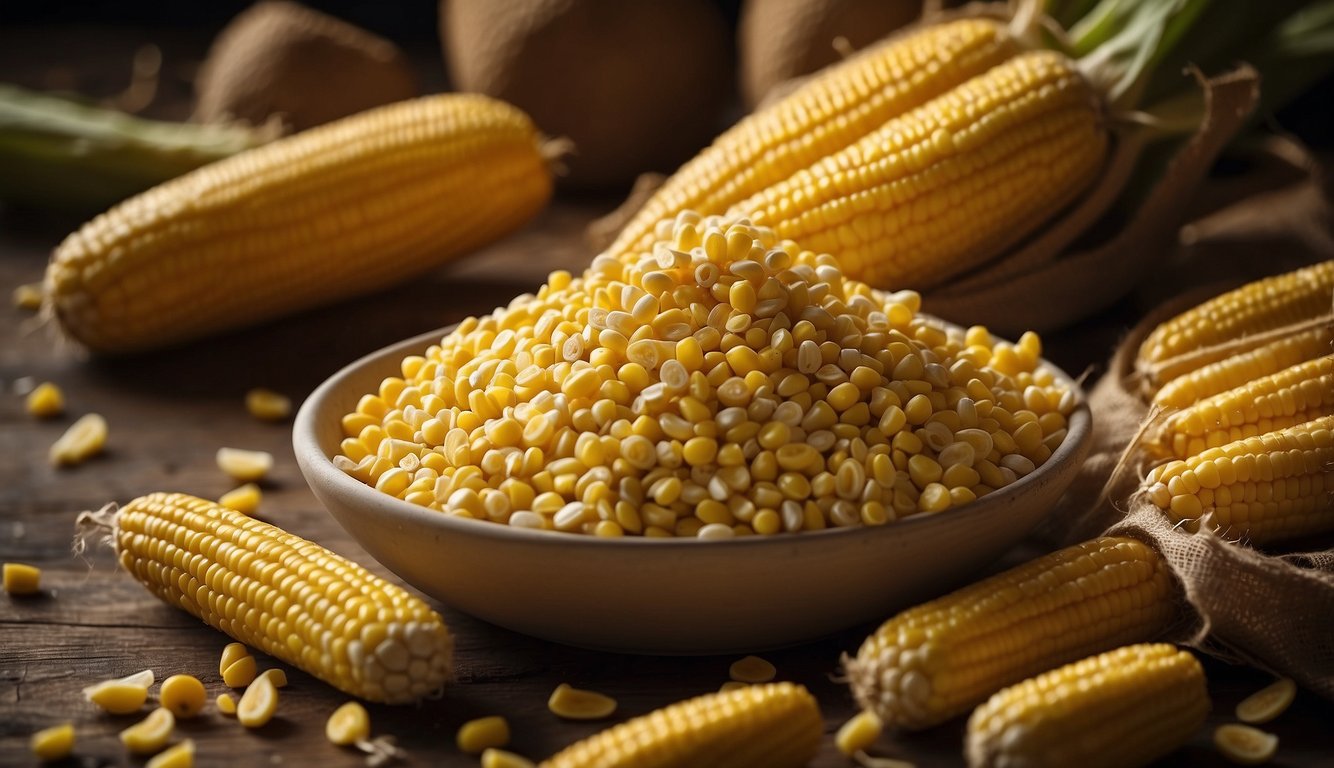
As an herbal remedy, cornsilk has been used for centuries by indigenous peoples for medicinal purposes. In this section, I will discuss the historical perspectives and modern applications of cornsilk.
Historical Perspectives – Get Your Corn Silk Here.
Native Americans have used cornsilk for centuries to treat various ailments such as urinary tract infections, kidney stones, and bedwetting. They also used it as a poultice to heal wounds and burns. Maize Silk was also used in Traditional Chinese Medicine to treat edema, jaundice, and hepatitis.
Modern Applications
Today, cornsilk is still used for its medicinal properties. It is commonly used as a natural diuretic to relieve water retention and to treat urinary tract infections. Maize Silk has also been shown to have anti-inflammatory properties, making it a useful herb for treating inflammation in the body.
Maize Silk can be consumed in various forms, such as tea, tincture, or capsule. It can also be applied topically as a poultice or added to bathwater for a relaxing soak.
Overall, cornsilk has a long history of use in traditional medicine and continues to be used today for its various medicinal purposes. As with any herbal remedy, it is important to consult with a healthcare professional before using cornsilk for medicinal purposes.
Cornsilk Consumption and Dosage – Get Your Corn Silk Here.
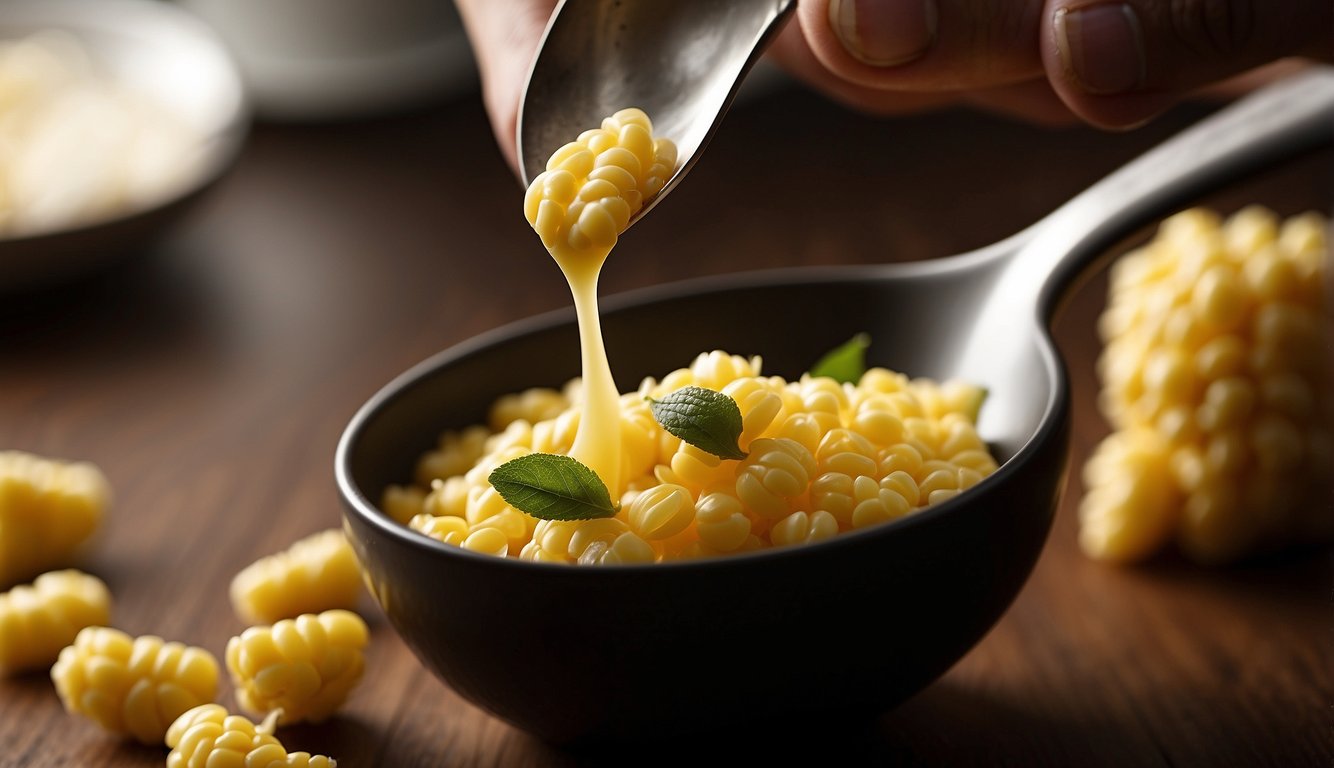
When it comes to consuming cornsilk, there are a few different options available. Cornsilk can be consumed as a tea or in supplement form. Here are some guidelines for each:
Cornsilk Tea Preparation – Get Your Corn Silk Here.
To make cornsilk tea, you can use fresh or dried cornsilk. If using fresh cornsilk, it’s important to wash it thoroughly before use. Here’s a simple recipe for cornsilk tea:
- Boil 2-3 cups of water in a pot.
- Add 2-3 tablespoons of fresh or dried cornsilk to the pot.
- Reduce the heat and let the cornsilk steep for 10-15 minutes.
- Strain the tea and serve.
You can add honey or lemon to the tea to enhance the flavor. It’s generally safe to consume 1-2 cups of cornsilk tea per day.
Supplements and Forms
Maize Silk is also available in supplement form, such as capsules or tablets. When choosing a Maize Silk supplement, it’s important to look for a reputable brand that uses high-quality ingredients. The dosage will vary depending on the supplement, so it’s important to follow the manufacturer’s instructions.
Dried cornsilk can also be used in cooking and baking. It can be added to soups, stews, and casseroles for added flavor and nutrition.
It’s important to note that while Maize Silk is generally considered safe, it’s always a good idea to talk to your healthcare provider before adding any new supplements or herbs to your diet.
Cornsilk Potential Risks and Side Effects
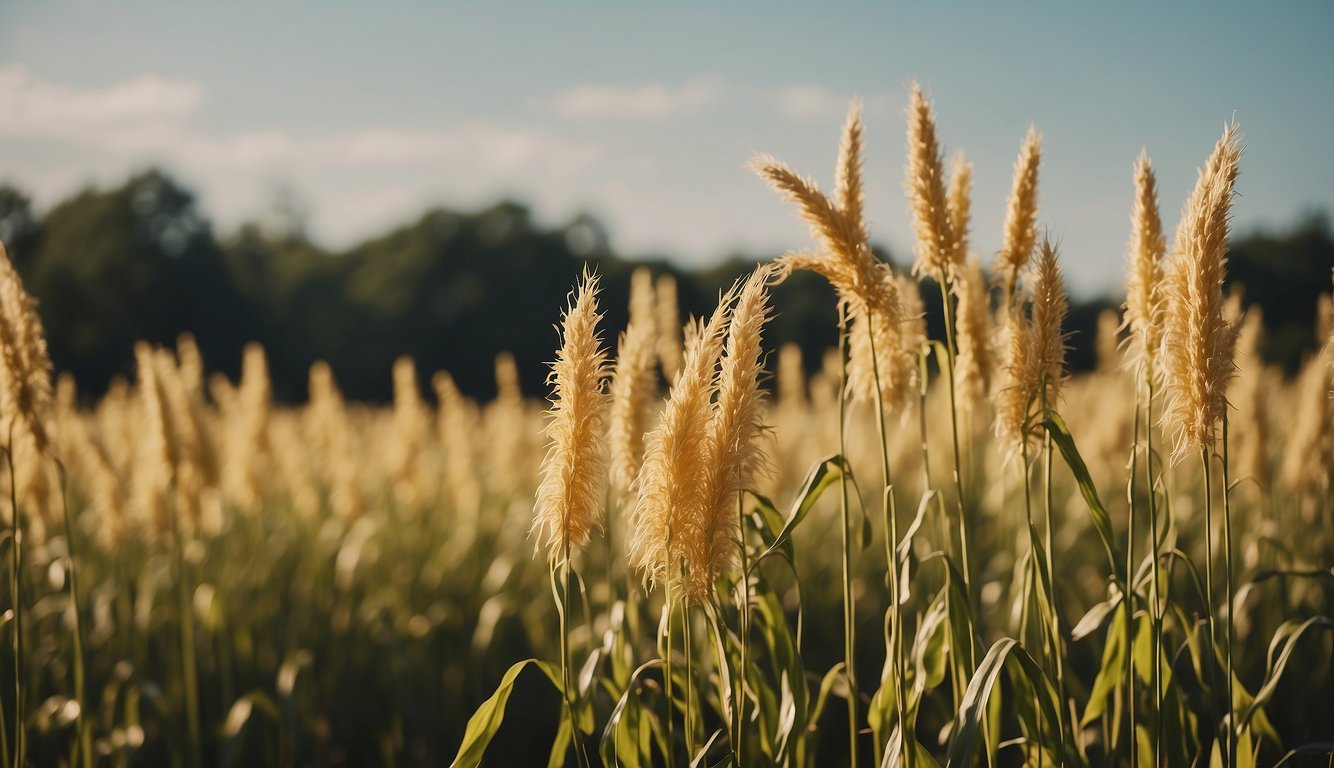
As with any supplement or medication, there are potential risks and side effects associated with using Maize Silk. It is important to be aware of these before incorporating cornsilk into your routine.
Interactions with Medications
Maize Silk may interact with certain medications, including diabetes medications, blood thinners, and anti-inflammatory drugs. If you are taking any of these medications, it is important to speak with your doctor before using cornsilk.
Adverse Reactions
While cornsilk is generally considered safe, some individuals may experience adverse reactions. These may include allergic reactions, such as hives or difficulty breathing. If you experience any adverse reactions after using Maize Silk, stop use immediately and seek medical attention.
Considerations for Special Populations
If you are pregnant or breastfeeding, it is important to speak with your doctor before using cornsilk. While there is limited research on the safety of cornsilk during pregnancy and breastfeeding, it is best to err on the side of caution.
Overall, while Maize Silk is generally considered safe, it is important to be aware of potential risks and side effects. Speak with your doctor before using cornsilk if you are taking any medications or have any concerns about its use.
Research and Studies – Get Your Corn Silk Here.
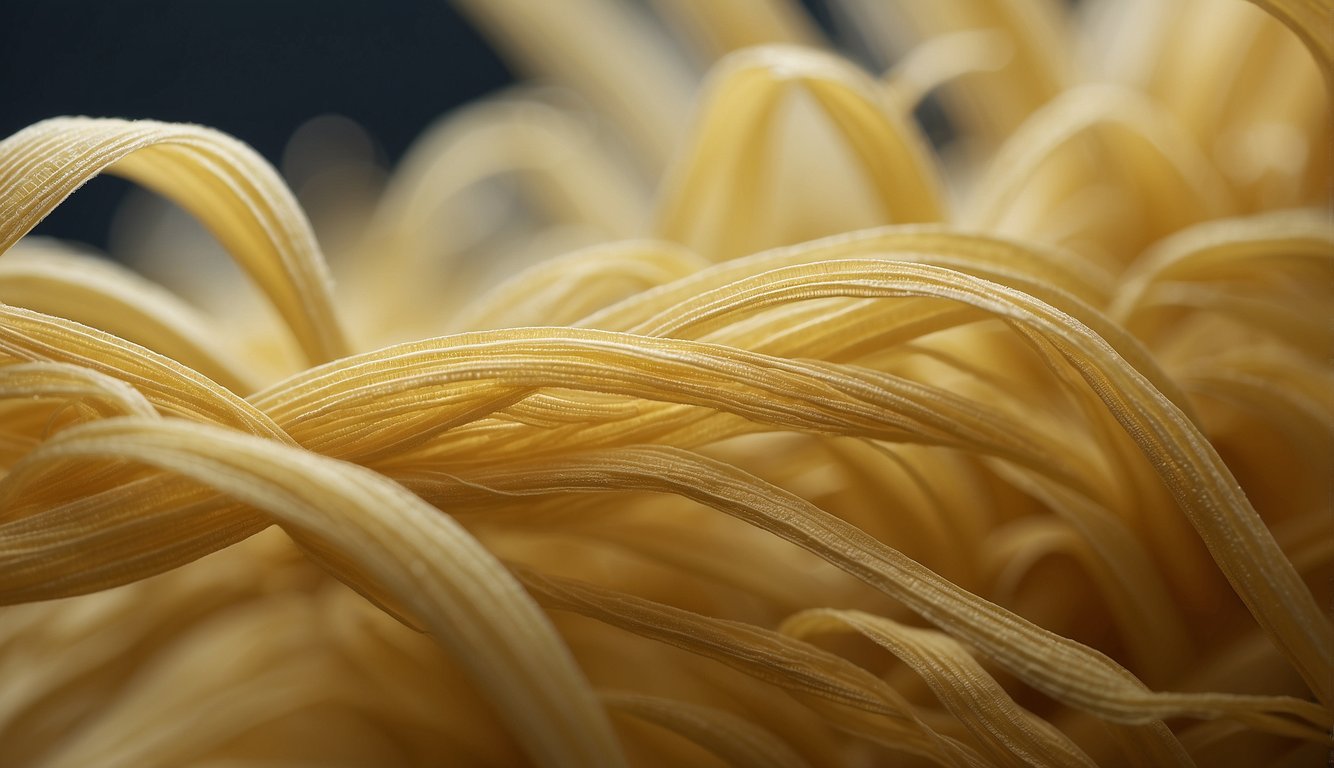
As a researcher, I have come across numerous studies that have been conducted on Maize Silk. The studies have shown that Cornsilk has various health benefits, including antioxidant and diuretic properties. In this section, I will highlight some of the most significant findings from clinical trials and laboratory studies on Maize Silk.
Clinical Trials – Get Your Corn Silk Here.
Several clinical trials have been conducted on Cornsilk to evaluate its potential health benefits. One study published in the Journal of Ethnopharmacology found that Maize Silk has diuretic properties, which may help to reduce blood pressure and improve kidney function. The study involved 40 patients with hypertension, and the results showed that Cornsilk significantly increased urine output and reduced blood pressure levels [1].
Another clinical trial published in the Journal of Medicinal Food investigated the antioxidant and anti-inflammatory properties of Maize Silk. The study involved 20 healthy volunteers who were given Cornsilk extract for four weeks. The results showed that Cornsilk significantly increased antioxidant activity and reduced markers of inflammation in the body [2].
Laboratory Findings
Laboratory studies have also shown that Cornsilk contains several flavonoids, which are potent antioxidants. One study published in the Journal of Agricultural and Food Chemistry found that Maize Silk extract contains high levels of flavonoids, including apigenin, luteolin, and quercetin [3]. These flavonoids have been shown to have numerous health benefits, including reducing the risk of heart disease and cancer.
Another laboratory study published in the Journal of Medicinal Food investigated the potential of Maize Silk extract to inhibit the growth of cancer cells. The study found that Cornsilk extract was able to inhibit the growth of several types of cancer cells, including breast, lung, and colon cancer cells [4].
The research and studies conducted on Cornsilk have shown that it has various health benefits, including antioxidant and diuretic properties. Further studies are needed to explore the full potential of Cornsilk and its active compounds.
[1] https://www.ncbi.nlm.nih.gov/pubmed/22819504 [2] https://www.ncbi.nlm.nih.gov/pubmed/24635197 [3] https://www.ncbi.nlm.nih.gov/pubmed/15563212 [4] https://www.ncbi.nlm.nih.gov/pubmed/21438648
References
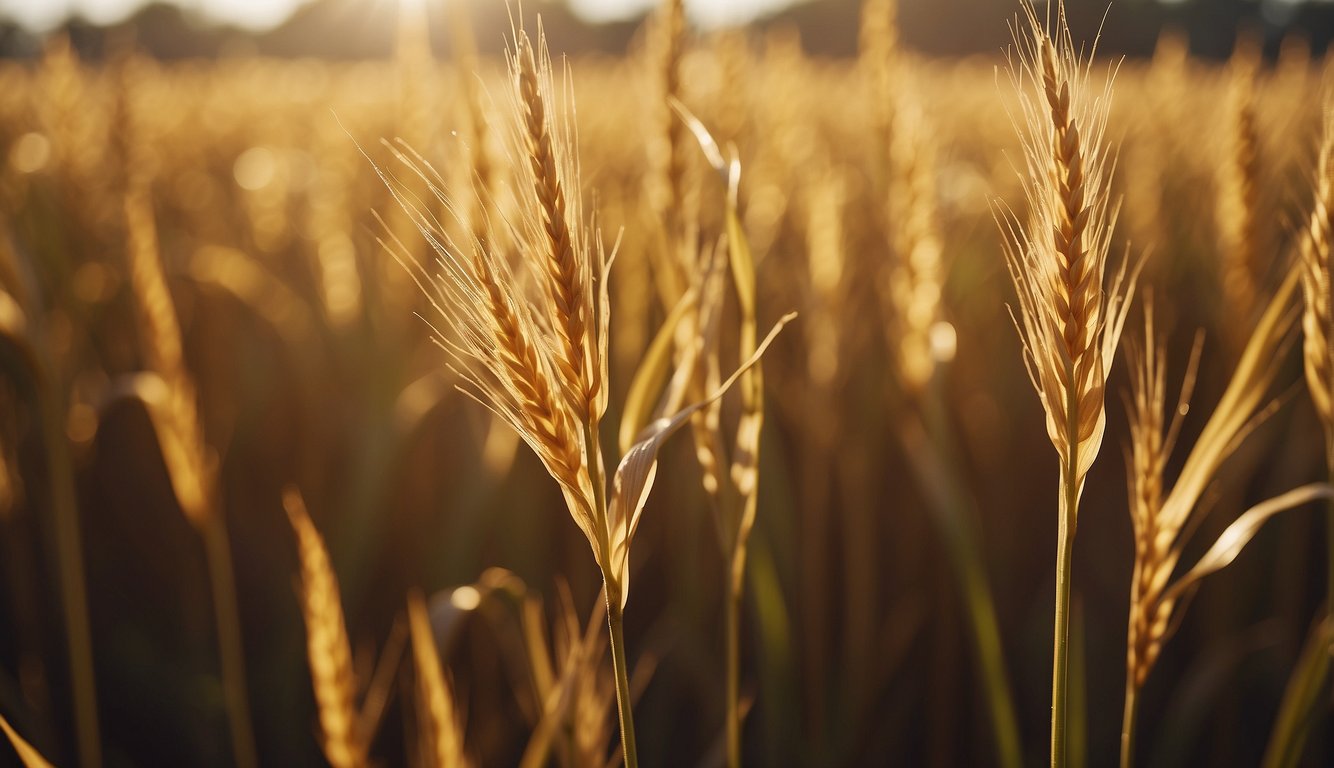
I have gathered information from various reliable sources to write this article about cornsilk. Here are some of the references that I used:
- The National Center for Biotechnology Information has published a review on the phytochemical and pharmacological properties of cornsilk. The review highlights the potential antioxidant and healthcare applications of Maize Silk such as its use as a diuretic agent, in hyperglycemia reduction, as an anti-depressant, and anti-fatigue agent.
- According to an article published on MedicineNet, Maize Silk may be a good treatment for high blood pressure due to its diuretic properties. It helps flush excess fluids from the body and rid the body of water and salt/sodium. However, more research is needed to confirm these claims.
- A comprehensive review on the nutritional composition and bioactive potential of cornsilk has been published on ResearchGate. The review highlights the nutritional value of cornsilk and its potential as a source of bioactive compounds such as phenolic acids, flavonoids, and alkaloids.
- An article on SuppleWiki explains the benefits and side effects of Maize Silk. It suggests that cornsilk is an adaptogen and should be cycled, taking two days off weekly to reset tolerance. The article also suggests that the effects of cornsilk are cumulative and must be taken for at least 2-4 weeks to notice most of the benefits.
- Finally, a study published on ScienceDirect highlights the potential health benefits of Maize Silk. The study suggests that cornsilk has diuretic, anti-inflammatory, and antioxidant properties. It has been traditionally used to treat cystitis, jaundice, edema, prostate disorders, urinary infections, and liver and gallbladder problems.
These references provide a comprehensive overview of the potential health benefits of cornsilk. However, more research is needed to confirm these claims and determine the optimal dosage and duration of cornsilk supplementation.
Cornsilk and TheHerbProf.com: A Silky Smooth Connection!
Maize Silk: At TheHerbProf.com, we’re all about Cornsilk! We delve into its health-boosting properties and its role in herbal medicine.
Herbal Highlights: Learn how Cornsilk can enhance your herbal routine. It’s not just a byproduct; it’s a wellness wonder!
Culinary Creations: Cornsilk in the kitchen? Absolutely! We share innovative recipes that bring out the best in Cornsilk.
Health and Wellness: We’re all about health and wellness, and Cornsilk is a key part of this mission. It’s packed with compounds that promote good health.
Community Connection: Join our community of Cornsilk enthusiasts! Share your journey, learn from others, and make some new friends.
So, whether you’re a Cornsilk connoisseur or just starting your herbal journey, TheHerbProf.com is your trusty companion. Dive in, explore, and stay healthy!
Precautions: Do not use corn silk if you also take Lasix (furosemide).
References:
Little Herb Encyclopedia, by Jack Ritchason; N.D., Woodland Publishing Incorporated, 1995
The Ultimate Healing System, Course Manual, Copyright 1985, Don Lepore
Planetary Herbology, Michael Tierra, C.A., N.D., Lotus Press, 1988
Handbook of Medicinal Herbs, by James A. Duke, Pub. CRP Second Edition 2007
The Complete Medicinal Herbal, by Penelope Ody, Published by Dorling Kindersley
Before You Go – Check the Following Articles!
Frequently Asked Questions – Cornsilk

What are the health benefits of consuming corn silk?
Corn silk is known to have several health benefits. It can help in controlling blood sugar levels, improving digestion, and reducing inflammation. It is also rich in antioxidants and can help in preventing certain types of cancer. Corn silk can also aid in maintaining healthy skin and hair.
How can corn silk tea be prepared at home?
Corn silk tea can be easily prepared at home. To make the tea, take a handful of corn silk and rinse it thoroughly. Boil a cup of water and add the corn silk to it. Let it simmer for 10-15 minutes. Strain the tea and add honey or lemon to taste.
Are there any side effects associated with using corn silk?
Corn silk is generally safe to consume and has no major side effects. However, some people may experience allergic reactions or stomach discomfort. It is advisable to consult a doctor before consuming corn silk, especially if you are pregnant, breastfeeding, or taking any medications.
In what ways can corn silk aid in prostate health?
Corn silk has been found to be beneficial for prostate health. It can help in reducing the size of an enlarged prostate and can also relieve symptoms associated with prostate problems like frequent urination and painful urination.
How does corn silk contribute to weight loss efforts?
Corn silk can aid in weight loss efforts by reducing inflammation in the body and promoting healthy digestion. It can also help in controlling blood sugar levels, which can prevent cravings and overeating.
What are the uses of corn silk in skincare products?
Corn silk is a common ingredient in skincare products due to its anti-inflammatory and antioxidant properties. It can help in reducing acne, preventing premature aging, and promoting healthy skin. Corn silk can also be used as a natural exfoliant to remove dead skin cells and improve skin texture.
